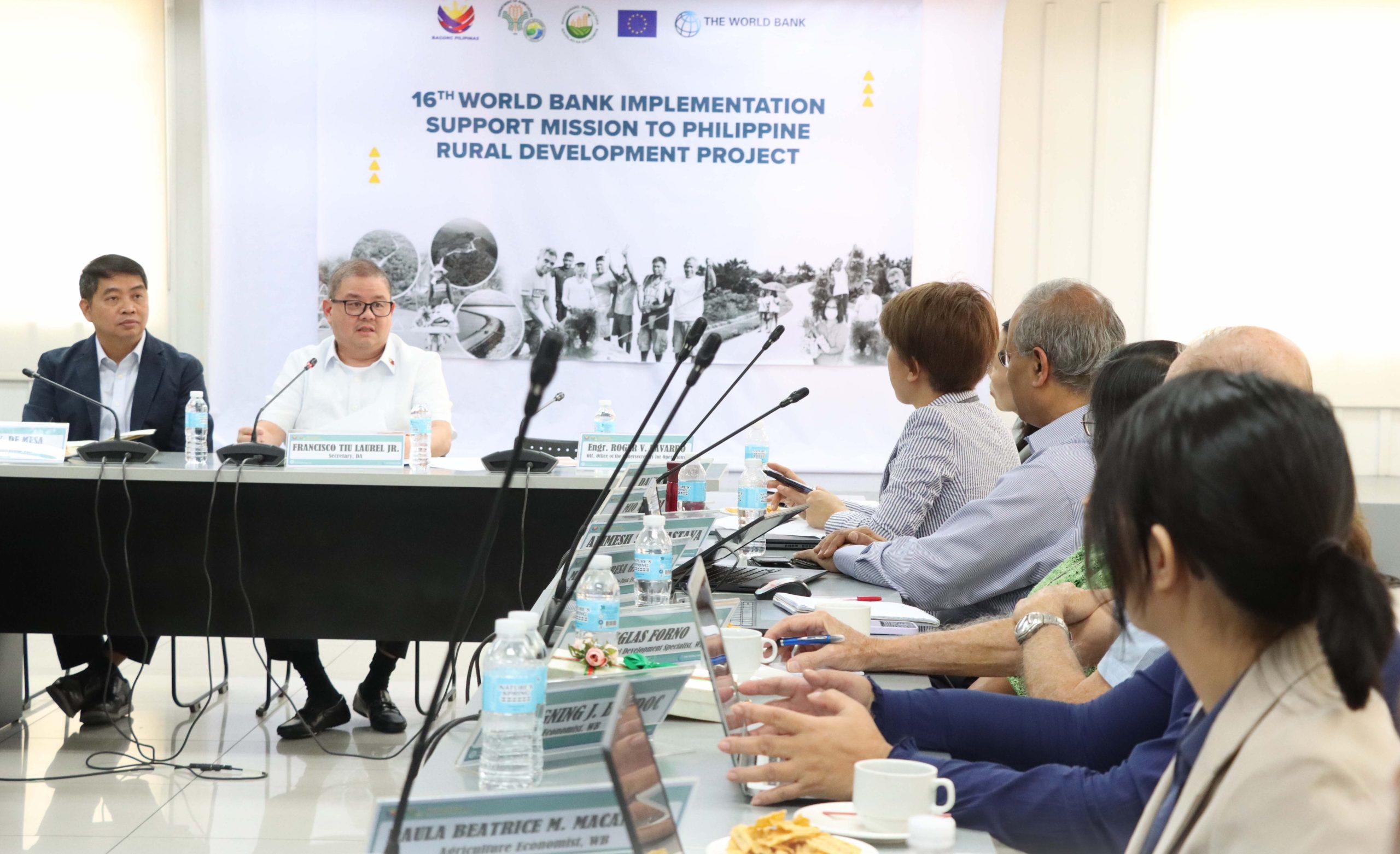
Agriculture Secretary Francisco Tiu Laurel Jr. called for the amendment of the Philippine Fisheries Development Authority (PFDA) charter to expand its function to include developing and managing marine and agro-industrial estates across the country to ensure ample food supply.
Laurel, who built one of Southeast Asia’s largest fishing companies before joining the Department of Agriculture, said that tweaking the PFDA’s functions dovetails with the Philippine Rural Development Program (PRDP) and President Ferdinand R. Marcos Jr.’s goal of modernizing the agriculture sector, which is part of administration’s Bagong Pilipinas key strategies.
At World Bank’s presentation of its latest report on the PRDP last November 22, Laurel described his vision for marine and agro-industrial estates as one-stop shops that will house ports, cold-storage facilities, silos, and warehouses to store farm and marine products such as rice, sugar, vegetables, palm oil, and other basic commodities, and ensure their stable supply.
“I’ve seen this model successfully implemented in South Korea and Japan. I hope the World Bank can help us realize this vision,” Laurel said.
In its PRDP report, the World Bank identified potential funding sources for Philippine agriculture like grant funds from the European Union and the Global Environment Facility to support marine-protected areas.
Laurel underscored the World Bank’s suggestions on the need for digital transformation in agriculture as well as improving the sector’s logistics.
“Definitely, we need a logistics masterplan. That is one thing I think is lacking in the DA,” said Laurel, who disclosed that he will soon appoint an assistant secretary whose sole focus would be logistics to ensure public funds are well spent.
Laurel said he has been meeting with lawmakers in recent days to seek possible adjustments in the 2024 budget to better align with the Marcos administration’s goal of increasing farm production to make the country food secure, as well as raise incomes of farmers and fishermen to lift them out of poverty.
Government estimates around 10 million farmers and fishermen live below the poverty line despite agriculture providing jobs for one in every four Filipino workers.
Latest economic data show agriculture’s contribution to the domestic economy shrinking below to single digit amid increasing dependence on imports, particularly rice and meat products. The Philippines’ agricultural trade deficit in 2022 due higher imports is equivalent of P660 billion, around four times the DA’s budget for next year.
“We need to scale up and get our priorities straight,” Laurel stressed. “I have technically three-and-a-half years to accomplish these things. The DA, under my watch, will do its best to speed things up.” ###














